A recent survey from enterprise tech provider Storyblok highlights significant frustrations among IT and marketing leaders at some of the world’s largest companies.
Ahead of the holiday season, 93% of respondents admitted their content management systems (CMS) are unable to keep up with their evolving needs, leading to concerns about missed opportunities during this critical sales period.
The study surveyed 300 IT and marketing leaders from global businesses, 29% of which report revenues exceeding $100 million. Nearly 40% of respondents indicated they are in constant need of better integration experiences, with 24% labelling their existing CMS integrations as “difficult.” These challenges, compounded by poor collaboration between teams and outdated content, are putting increasing pressure on brands to modernise their tech stacks.
Dominik Angerer, CEO of Storyblok, observed that many companies are struggling with their monolithic CMS solutions, which often create bottlenecks. He stated, “They are dreaming of a CMS that’s keeping all their systems in sync without constant workarounds.”
The survey also revealed that outdated content remains a pervasive issue. Most respondents acknowledged that 20-30% of their CMS content is no longer relevant. Compounding this problem, only 29% of companies update their content monthly or more frequently, and 37% lack an effective content audit or update process.
Collaboration Between IT and Marketing Remains a Key Issue
Poor collaboration between IT and marketing teams was another significant finding from the report. Forty per cent of respondents described cross-departmental collaboration as either ineffective or non-existent. This disconnect often forces marketers to rely on developers for basic updates, such as changing website posts or editing multiple pages, leading to delays and inefficiencies.
Angerer pointed to headless CMS systems as a potential solution to these issues. Unlike traditional monolithic CMS platforms, headless CMS systems are designed to be integration-friendly and enable marketers to make updates without requiring developer intervention. Angerer added, “These flexible, integration-friendly systems meet the needs of both marketers and developers.”
Integration Challenges Could Impact Future Performance
As brands face increasing pressure to deliver seamless omnichannel experiences, integration is becoming an essential focus area for 2025 and beyond. Storyblok’s findings suggest that failure to address integration challenges could lead to significant costs, including underutilised marketing technology, limited scalability, and reduced cross-team collaboration.
This follows a previous Storyblok report that revealed nearly half of all businesses are dissatisfied with their websites, despite spending an average of $453,126 on marketing technology. Poor website user experiences are estimated to cost businesses $72,000 annually in lost sales.
The rapid growth of new technologies and the need for unified data management are driving this trend. According to Storyblok, prioritising integration-friendly solutions like headless CMS platforms can help businesses overcome current limitations, save resources, and better position themselves for the future.


 Whether you want to learn how to use LinkedIn, X or Facebook for marketing, or need to brush up on business skills like leadership, presentation skills or managing meetings, you will find something to enhance your professional skills with these on-demand courses.
Whether you want to learn how to use LinkedIn, X or Facebook for marketing, or need to brush up on business skills like leadership, presentation skills or managing meetings, you will find something to enhance your professional skills with these on-demand courses.